
Six agents demystify some of the key ins and outs of the artist-agent relationship.
Some agents seek out artists because they want to support scenes, subcultures and talent they truly believe in. For others, it’s all about marketability. Agents, at the end of the day, are part of the music industry’s profit-driven ecosystem. So how does it all work?
We spoke with agents from several influential agencies—including On Board Music, LittleBig, Circle Booking and One House—as well as independent agent Michael Feghali to provide some insight and tips on navigating the system.
What does a booking agent do?
The role of an agent varies depending on the agency, the agent themselves and how involved others are on the artist’s team. Put simply, their role is to get the artist gigs. But in reality it’s more complicated than that. The agent is there to field, process and create opportunities for shows that align with the artist’s vision. Under that umbrella falls the logistical side of operations, which includes negotiating the terms of the bookings, handling contractual proceedings, sorting out travel and itineraries, dealing with promoters and venues, and sometimes even organising press. A great agent is like a co-pilot who works with the artist to steer the direction of their brand and career.
In a way “agents can act as a shield for artists—’the good, the bad and the ugly’ all in one person,” said Feghali. Agents are the middleman between acts and their contacts for live gigs, handling the operational side of making a show happen so the artist can focus on what they do best: their art.
A good agent not only has a firm understanding of the industry and their artist’s corner in it, but also an innate “understanding of people, whether [it be the] promoters or artists themselves, and how they work and think,” Feghali added. The industry is heavily reliant on “building meaningful relationships and trust between peers and colleagues,” so a good agent’s liaison will, with luck, turn one good show into a slew of upcoming opportunities.
Beyond the basics, an agent’s role can get quite complex. According to Laura Le Marchand from On Board Music, “the role of the agent can be so diverse—and it really depends also on the agents and their personal touches.” While some focus entirely on live gigs, others can go the extra mile of “advising, elaborating strategies, pushing the artists and their creativities, discussing a vision. [They] create a team together.” In other words, agents can assist the artist in their world-building.
What is the career path to become an agent?
The truth is there is no set career path. It can arise in many forms. Some agents start with an internship or an entry-level position at an agency. Others start by throwing parties.
“A lot of people get into it via promoting parties and getting an understanding for how the backend of the industry works: how to deal with agents, how it works from their side, the kinds of things they ask for,” said Barry Davies, head of live at One House. One of the key skills, he added, was that “you need to enjoy speaking with people, nurturing relationships and generally being a bit of a middleman.”
According to another agent, the most important training for her was working as a promoter for four years while tour managing on the side. Gaining that in-depth, dual understanding of both the artist’s and organiser’s perspective remains an invaluable part of her practice today. She also suggested that the issue of overinflated fees and aggressive leveraging may come from people who haven’t had the first-hand experience of putting a show together and the precarious economics involved.
Other agents will get their start from “working closely with upcoming artists from scratch” and learning to do it by themselves, said LittleBig’s Alma Ernst, who has worked with the likes of Daft Punk, Theo Parrish and Moodymann. These individuals become agents because of their existing relationships with artists, typically when the artist is early in their career and needs help managing bookings.
What’s the difference between an agent, a manager and a publicist?
There are notable differences between these roles. While some agents go above and beyond for their artists in terms of helping with vision, press and more, most of the time the creative side is left with managers, and press to publicists (where applicable).
Managers help their artist develop their direction, their image and their aesthetic, and musical signatures. A manager handles the artist’s overall strategy, which the agent feeds into. This means that managers need more strings to their bow in terms of label services, brand deals, coaching and plenty more besides. In some cases, a triangle—artist, manager, artist—may form and become a team of equals. In others, the agent will very much sit beneath the manager and just focus on handling live bookings and global tours.
Publicists handle interviews, press requests, media and other external outlets for their client’s appearances. In the best case scenario, all three roles work cohesively to cater to their artist’s needs.

How do you know when you’re ready for an agent?
First of all, it’s important to note that not all artists need an agent. But for those that do, the most quantifiable signifier is a notable rise in requests from promoters. One agent we spoke to said that “when you have an increase in natural enquiries coming in and your capacity for answering and organising things becomes harder,” this may be time to consider getting external support. It’s, however, “important for an artist to have the experience of handling this themselves for a while,” they added. “It helps them create natural and direct relationships with promoters who are early adopters and fans.”
For artists who have a long-term plan, it could be a good idea to present a “plan of action” to an agent, so that they can “bring their expertise to strategise and [potentially] put a tour together or have more activity,” the agent added. “As an agent, if you’re able to translate an artist’s vision and their ambition/plan, with specific things happening (press, releases, etc.), then you’re in a good place to raise interest from promoters.”
How do you get noticed by a booking agent?
DJ sets and live shows are a common way for agents to notice new artists. Playing alongside more established artists, or artists with representation, can boost visibility for upcoming talent. Alexandra Ismalone, agent to Ben Klock and others at Circle Booking in Berlin, said “the fastest way to get seen is to get pushed by a bigger artist, play in artist showcases and work on collaborations.”
Social media presence can also make a difference. When it comes to self-promotion, Instagram, YouTube and other streaming platforms provide various channels for agents to discover new artists. And, as Ismalone explained, other streaming platforms such as HÖR can lead to higher visibility with a well-timed or well-placed mix.
Unsurprisingly, numbers can play a big part in getting discovered in the digital sphere. For example, one particular artist on Circle’s roster was discovered through her viral HÖR set. “She had 400,000 views after only a month,” Ismalone said. “Then you look at other bigger artists who haven’t reached that amount with even older videos. So I wondered why this artist had so many views. It was kind of a mystery to me, but it worked because we got to know her through her HÖR set and then took her on.”
Artists can also pitch themselves to agencies. Many of the agents we interviewed agreed that while this isn’t exactly common practice, it can be promising, depending on the agent and circumstance. What it really comes down to is “timing, and maybe a connection,” Le Marchand said.
Live vs DJ
Live sets and DJ sets follow different protocols and attract different agencies. “Live acts can’t play that often and have less bookings than DJ acts,” Ismalone explained. “Live acts often bring gear with them, need more space on the booth or sometimes even require their own stage, and the performance is shorter, so financially it’s not always worth it.”
For promoters, it’s usually more appealing to book a DJ who will play for three or four hours than a live act who will play for 45 minutes and potentially require extra performers. In some cases, more high-profile live acts will require a higher fee for a shorter performance.
That said, some agents prefer to work with live acts. “Live performances, concerts and experimental festivals get a bit more interesting and conceptual, so there’s more time spent in the lead-up and on the details,” Feghali said. While it can be time consuming, the end result is often more rewarding.
“Even if the live performance is totally improvised or presenting new material, the audience is there for the producer or person who creates the music,” Fegahli said. In these cases, the artist’s core fanbase might be stronger than for a DJ.

How do you find the right booking agent?
The right agent should match the artist’s specific needs. What’s most important is a baseline level of understanding. Having an “in-depth conversation—talking about the past, how the artist has started with music in general, what their first inputs were [is great],” Le Marchand said. “It’s important to connect and understand where the artists are and where they want to be.”
An agent should try to be as involved with the artist’s events as possible. This means “going to gigs with your artist, and being present in the scene—not just behind your computer in an office,” Ismalone said. A personal relationship with the artist and an inherent understanding of the scene are crucial.
What percentage of an artist’s fee does an agents take as payment?
Generally, agents will take ten percent for making the deal. This includes initially broaching contracts before passing further coordination to tour management or management. Other agents will charge up to 15 to 20 percent if they work more on logistics and advanced tasks such as “setting up the itinerary, being there on the day of [the] performance to troubleshoot, chasing invoices, [helping with the] visa process [or] tax[es] and anything after the show,” said Ernst.
What happens after you get an agent?
Once the artist finds an agent, first comes a profile clean-up—a revamp. This general housekeeping can include setting up a newsletter, building a website or artist profiles and working on social media announcements. Then comes the bigger-picture planning. Agents will sit with their artists and discuss the trajectory of their career. Together they make “short- or long-term plans together—goals and targets for shows to pursue and musical direction, as well as releases, mixes, collaborations and residencies,” Feghali said.
As with any collaborative relationship, the key to a successful agent-artist dynamic is staying on the same page. Communication is key, and each pulling their own individual weight is vital for the progression of the relationship. “You get close and get to know each other’s needs and desires,” Ismalone said. “Sometimes the artist relies too much on the agent and the situation can become suffocating for the agent, and frustrating for the artist.”
A healthy relationship rests on mutual understanding: when an artist knows where they stand and what’s realistic to expect, and when the agent is proactively seeking out more opportunities instead of just replying to incoming requests. It’s easy for artists to adopt the, “‘I have a booking agent and things will run by themselves’ mentality,” Ismalone continued, “but the relationship can only be successful if the artist keeps working on their music and profile and the booker follows with the right events.”
So how can artists get the most out of having an agent? It all comes down to trust and understanding their role in the partnership. Artists need to keep their agent in the loop with new material, press and long- and short-term goals, so that the agent is better able to cater their needs. Having a strong artistic vision and sense of identity will also help.
Once the bookings start rolling in, it’s all about staying active on socials, networking with others in similar communities and continually nurturing existing relationships to stay on the radar. The balance can be hard to sustain—social media fatigue is real and maintaining a digital presence should never overshadow an artist’s work. The key is to find a happy medium between all these facets and not be discouraged when you feel you’re doing all the right things and not getting the expected results. Some things just take time.
Do agents and artists sign contracts?
Typically, no. It’s essentially a freelance relationship where either party is free to leave at any time. Unlike with management, where artists might have so-called sunset clauses—agreements to remunerate the manager for a period of time after they part ways with the artist—agents just work on a rolling basis, booking shows and earning a cut until the relationship ends. So while a great agent can elevate an artist’s career in the same way a great manager can, sunset clauses aren’t a part of the agent-artist deal.
If there is a contract, what should artists be looking out for?
For those who do choose to go the more traditional route of negotiating terms and signing a contract, a few tips should be considered. First, artists should confirm the percentages that the agent will be taking as their fee; they should discuss the tasks expected of each other; decide on the time frame under which they’ll be legally bound to each other; and discuss logistics for if and when the contract ends, and what info and contacts can be shared or taken to subsequent agencies in the future.
One major point to always look for, according to Ernst, is that the contract doesn’t circumvent any sunset clauses. “Make sure: no company can get X percent of you after you’ve left them for over a year. [And definitely] not for more then 5 percent of your income,” she said. Sunset clauses propose that any binding actions and legislations will be rendered null after a set date. This is extremely important for artists to recognise so they don’t get roped into years-long contracts with agencies who seek to continue profiting off their artists after their partnership has expired.
If contracts are rare, are agents free to poach artists from other agencies?
Yes, it happens. And there are also plenty of managers who think the grass is greener and will reach out to other, usually bigger agencies. It’s part and parcel of the industry. Some say it’s a good way of keeping artists and agents on their toes and avoiding complacency.
Although getting their first agent is a milestone in any artist’s career, it’s important to keep the ball rolling. Usually, an artist’s first agent isn’t their last. In fact, for some artists, having different agents in different regions is the key to scaling up and broadening international reach. It’s not uncommon for upcoming artists to get discovered by bigger agencies through smaller agency reps.
In situations like these, it’s important for the artist to understand what they need before transferring agencies. Larger agencies may be able to pull bigger shows, but will they be able to offer the attention and care of smaller agencies? “The artist needs to clearly study what path the agency they decide to work with is gonna propose to them and stay down to earth even if [they] integrate [into] a bigger booking agency,” Le Marchand told me.
Do some agents leverage their bigger acts to get their smaller acts on lineups?
Yes. Some agents are very direct about it: if you want to book headliner A at your festival, then we need three additional slots for smaller artists B, C and D. Others take a softer approach by trying to build relationships with promoters over time and earning their trust. If your agent has a good reputation, then a promoter is more likely to take risks.
“I’ve always liked having a healthy relationship with promoters where I make it very clear at the beginning that I want to work with them for my big acts, middle-tier acts and smaller acts,” said Davies from One House. “It’s about creating a story and a pipeline for artists. Today’s smaller acts may be tomorrow’s headliners. We’re not forcing promoters to do anything; we’re just framing it in a way where if the promoter supports these smaller acts now, they’re going to reap the rewards later down the line.”

Do artists need different agents in different parts of the world?
It varies. There are agents who look after artists globally and agents who use sub-agents for certain artists in specific territories. Often the Americas will be handled independently by another, usually larger agency. In this case, the main agent just hands over the work and takes no cut. But for somewhere like, say, Italy or Australia, the main agent may essentially loan their artist to another agent—who usually knows the local language and landscape inside out—in that territory. The main agent will then take a smaller cut. This also helps the main agent develop closer relationships with local promoters all over the world, which will probably prove beneficial in the long run.
What happens if you get dropped by your agent?
Sometimes artists get dropped by agencies, whether due to the latter’s development (going in a different direction) or because of incompatibilities between the two parties. In some cases, artists will start looking for a new agency or realise they can do things on their own. While these changes can feel tough, “sometimes it can also be positive,” Le Marchand said. “It’s always better to not carry on with a non-working and stressful relationship on both sides.”
According to Ernst, the most likely cause of friction between an artist and their agent is when the artist “hasn’t done a proper reality check.” Fissures in the relationship can happen when the artist creates a constant feeling of complete dependency on the agent, paired with a demanding attitude. On the other hand, when an agent feels they “are in total control of the artist’s career” the artist may similarly feel burdened by the agent and naturally pull away.
General advice
A career in music isn’t a walk in the park. But hard work can be immensely rewarding, and the connections made along the way can become some of the best parts of the job. As artists advance in their careers, longer tour runs may become an option, and while on the road, the artist and their team can often become close friends, even chosen family.
“It’s not easy to keep a healthy lifestyle and to find some time for yourself with such rhythm [of tour],” Ismalone said. “You can feel lonely, quickly, even though you’re playing for thousands of people every weekend and sometimes your agent can turn into being your ‘best friend,’ or your reference point back to reality.”
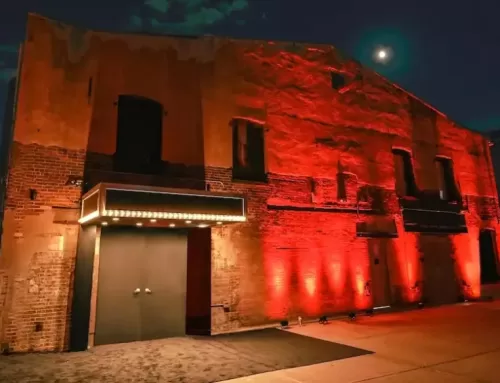
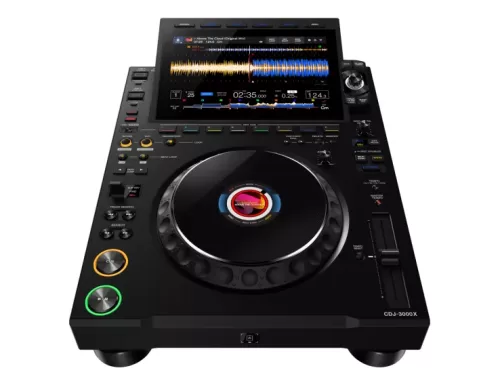
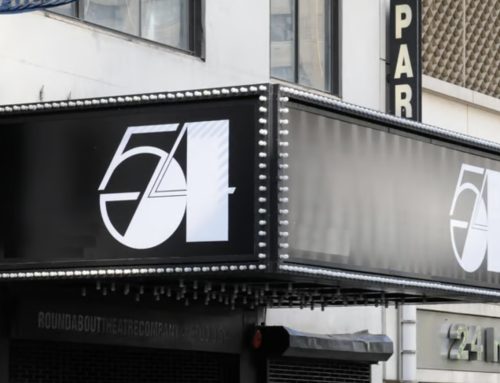
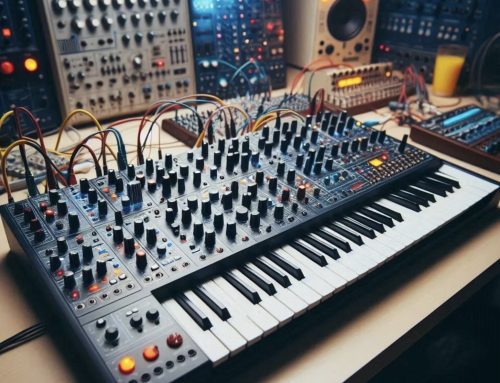
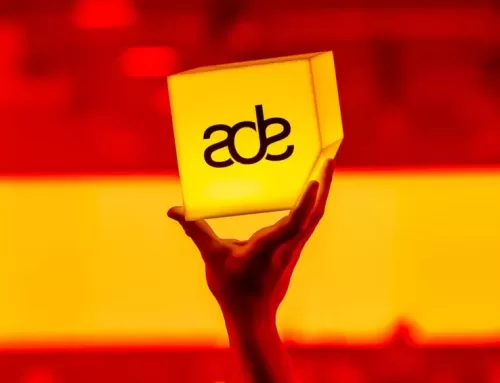
Leave A Comment
You must be logged in to post a comment.